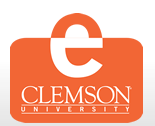On January 14th, 2011, CTLT and Student Development & Services will be hosting a seminar presented by Richard Keeling and Richard Hersh of Keeling & Associates. This seminar will be of interest to anyone working in the area of teaching and learning and will focus on ‘High Impact’ practices and assessment.
Pathways to Student Success: High Impact Practices in Teaching and Learning
Date: January 14th, 2011
Time: 12:00pm-2:00pm
Location: Irving K. Barber Learning Centre-Lillooet Room, 301
In this seminar Dr. Richard Keeling, M.D. and Dr. Richard Hersh, Ed.D. of Keeling & Associates will review research, current scholarship and emerging best practices in promoting student learning, achievement, and success. They will emphasize “high impact practices” (such as first year seminars, undergraduate research, and international learning opportunities) associated with the accomplishment of desired learning outcomes and the roles of institution-wide initiatives (including formative and summative learning assessments, stratified approaches to advising, and the establishment of high expectations and standards) in helping students learn. A central focus of the seminar will be on the need for consensus within and across Faculties about creating and assessing cumulative, collective student learning outcomes.
*lunch will be provided
Keeling & Associates (K&A) works with colleges, universities, and professional organizations to promote student learning and strengthen institutional effectiveness. The Company believes that learning should be transformative, that learning must be at the core of the mission of colleges and universities, and that sound processes of institutional renewal can enable campuses to improve learning in its broadest sense. K&A has worked with more than 250 institutions and organizations over nearly 25 years of practice.
Dr. Richard Keeling serves on the Board of Directors of the Council for the Advancement of Standards in Higher Education (CAS) and has been president of four professional organizations. He edited three sequential publications that focus on improving learning: Learning Reconsidered, Learning Reconsidered II, and Assessment Reconsidered. Dr. Keeling has published more than 125 other articles, monographs, and books, and served as Editor, for two terms, of the Journal of American College Health. He has received the highest awards of both the American College Health Association (ACHA) and the National Association of Student Personnel Administrators (NASPA).
Before creating Keeling & Associates, Dr. Keeling was both a tenured faculty member and a senior student affairs administrator at the University of Virginia and the University of Wisconsin-Madison. During more than 20 years on campus, Dr. Keeling taught and practiced medicine, directed comprehensive health programs and services, developed collaborative programs in undergraduate education with academic departments and faculty, and explored innovative approaches to advancing student learning.
Dr. Richard H. Hersh has been Senior Consultant with Keeling & Associates since 2006. Before joining K&A, he served as President of Hobart and William Smith Colleges and Trinity College (Hartford), and was Provost and Vice President for Academic Affairs at The University of New Hampshire and Drake University. He also served as Vice President for Research and Dean of the Graduate School at the University of Oregon and was Director of the Center for Moral Education at Harvard University. In his early career he was a high school teacher, professor, and dean of teacher education.
Dr. Hersh was a member of the Association of American Colleges & Universities Greater Expectations panel and for the past seven years has served as Co-Director of the Collegiate Learning Assessment (CLA) and College and Work Readiness Assessment (CWRA) projects that have developed an innovative “value-added” approach to assessing student learning at the college and high school levels. The journal Peer Review devoted its Winter 2002 issue to this project and included commentary from leading researchers from around the nation. The November 2005 issue of The Atlantic Monthly featured the article by Dr. Hersh “What Do Colleges Teach?” about measuring student learning.
Event Link: http://events.ctlt.ubc.ca/events/view/1162
